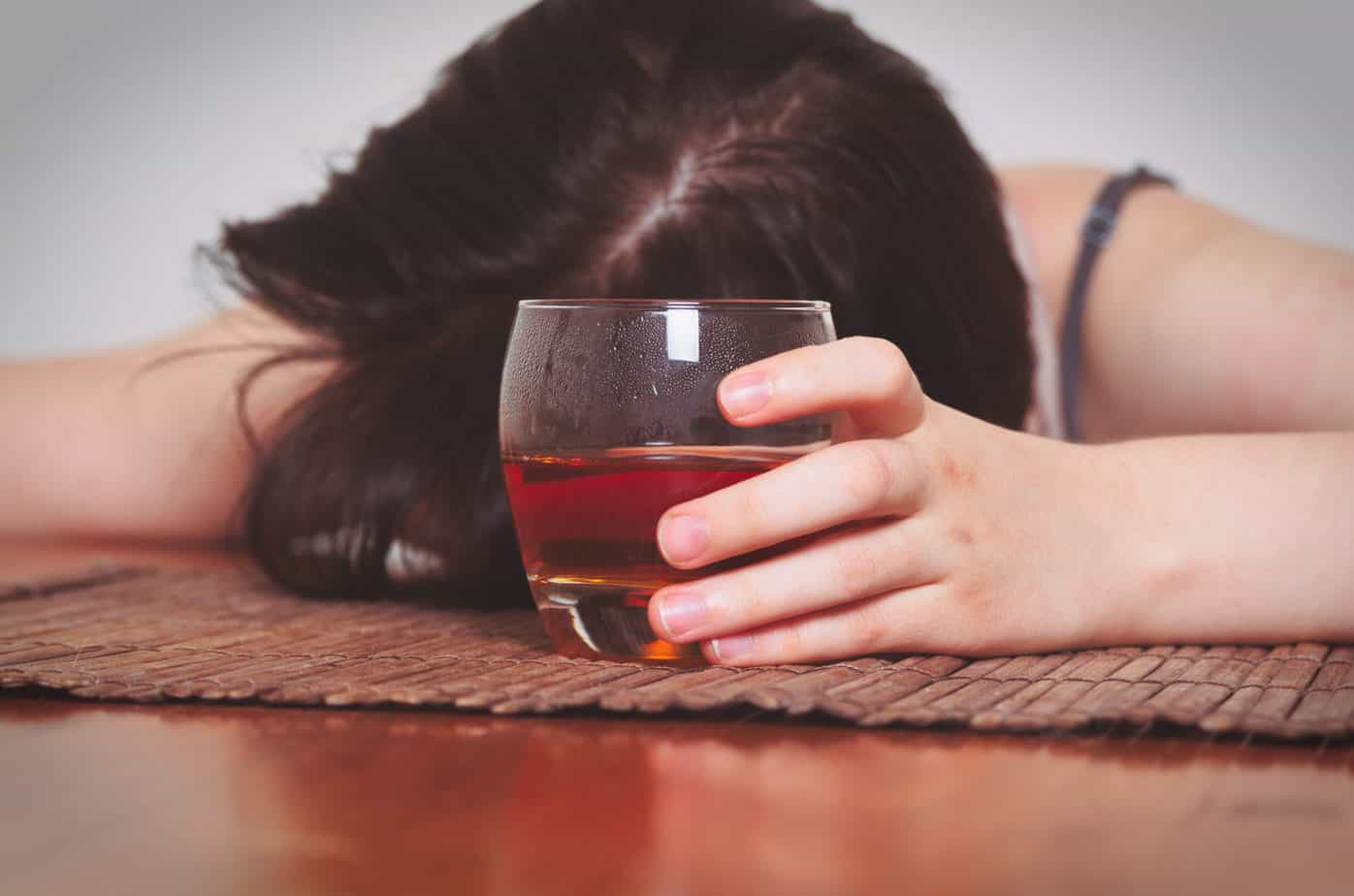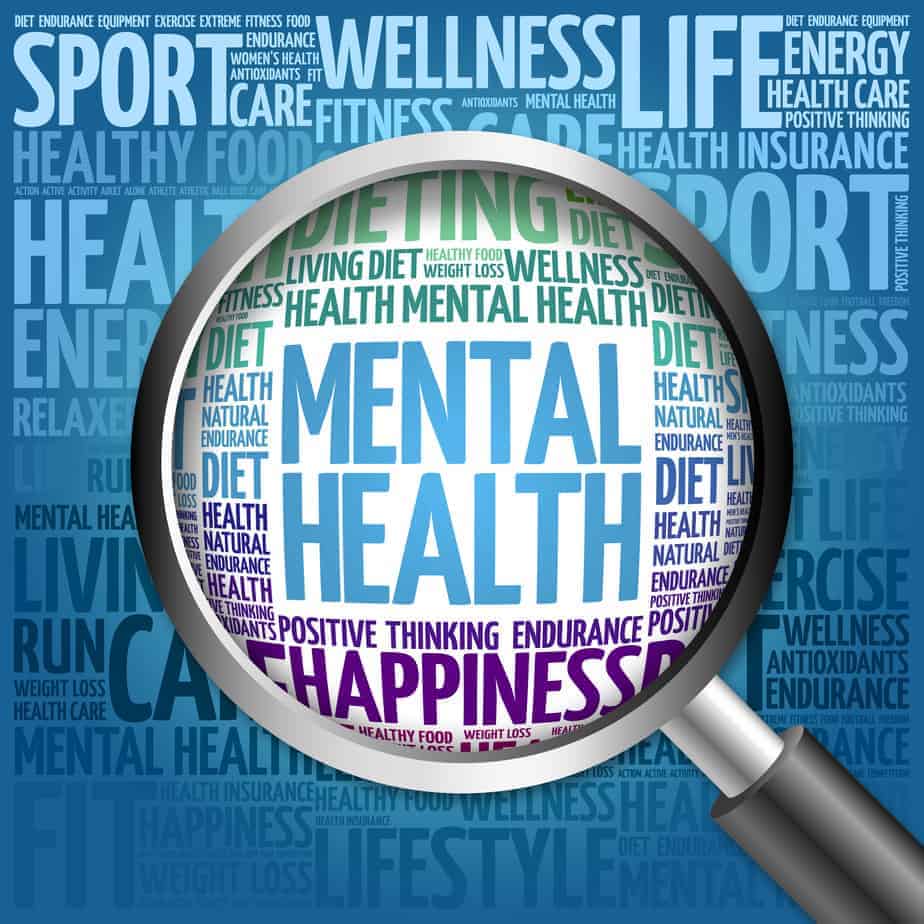Relationship Between PTSD and Addiction
Some people with PTSD may use drugs and alcohol to manage their symptoms and develop an addiction. Post-traumatic stress disorder (PTSD) is an anxiety disorder caused by a traumatic experience in a person’s life, such as military combat, sexual abuse, or car accidents [1]. According to the National Center of PTSD, about 8 out of 100 Americans have PTSD [2]. Some may experience flashbacks of the traumatic event, fighting thoughts, and bad dreams.
Post Traumatic Stress Disorder (PTSD) is a relatively new diagnosis for something that has been around for a long time. As the name implies, PTSD is a condition that occurs after traumatic events have happened to an individual.
Soldiers during World War I first used the term “shell shock” to describe the symptoms that some soldiers who had experienced military action were exhibiting. It described “shell shock” as a range of symptoms that he was sure were psychological and caused by repressed trauma. That’s why we also encouraged and developed psychological treatment protocols.
Signs Of PTSD
- Attitude and behavioral changes, such as easily irritated and angered
- Difficulty sleeping and concentrating
- Feeling numb and avoiding people, places, or activities
- Reliving the trauma, experiencing flashbacks, and having nightmares
PTSD Quiz
Post-traumatic stress disorder (PTSD) is a mental health condition that can develop after experiencing or witnessing a traumatic event. While PTSD is a serious condition, it is treatable, and early intervention can make a significant difference in a person's recovery. If you are concerned that you or someone you know may be experiencing symptoms of PTSD, taking a PTSD test online can be a helpful tool to identify some common symptoms. However, it is important to note that a PTSD quiz is not a medical diagnosis and should not be used as a substitute for professional medical advice. If you have concerns about your mental health, please consult a qualified healthcare professional.
*By taking this free quiz, you may obtain your results online and in your email box. You'll have the opportunity to opt-in to learn more about your symptoms, talk to a mental health consultant and join our newsletter. Rest assured your information is private and confidential. Results, consultations and assessment are provided without any cost to you and without any obligation. If you do not wish to provide your contact information, you may omit it during your quiz. Thank you for opting in and participating. To you best of health.
Skip to:
- Signs Of PTSD
- PTSD And Addiction
- PTSD And Addiction Statistics And Facts
- PTSD And Addiction Symptoms
- PTSD And Addiction Intrusion Symptoms
- PTSD And Addiction Avoidance Symptoms
- PTSD And Addiction Reactive Symptoms
- PTSD And Addiction Signs Of Drug Abuse
- PTSD And Addiction Risk Factors
- Substance Abuse And Co-Occurring PTSD
- Use Of Drugs And Alcohol To Cope With PTSD
- Therapies Used To Treat Post-Traumatic Stress Disorder And Addiction
- PTSD and Addiction Recovery Programs
- Drug Addiction and PTSD Treatment
Learn More:

Get Your Life Back
Find Hope & Recovery. Get Safe Comfortable Detox, Addiction Rehab & Dual Diagnosis High-Quality Care.
Hotline(844) 597-1011PTSD And Addiction Symptoms
PTSD has many different symptoms and can manifest in several different ways.
People can have different experiences. For example, some may have more fearful re-experiencing symptoms, while others may struggle more with depressive moods, negative thinking, or social relationships.
PTSD And Addiction Intrusion Symptoms
- Psychological distress when exposed to cues that relate to the event
- Significant physical responses to cues that relate to the event
- Dissociative reactions or flashbacks in which the person relives the event
- Repeated dreams about the trauma
- Persistent and involuntary dreadful memories of the event [3]

PTSD And Addiction Avoidance Symptoms
- Avoid external factors (such as locations, conversations, people, or activities) that remind the person of the traumatic event and cause terrifying thoughts, feelings, or memories
- Avoidance of painful memories, thoughts, or feelings associated with the trauma [3]
Negative Mood And Thought Changes
- Amnesia surrounding components of the traumatic event
- Negative thoughts or beliefs about the world, others, or oneself
- Distorted thinking leads to blaming oneself for the event
- A chronic negative state of emotions (such as shame, anger, guilt, or fear)
- Lack of interest in hobbies or activities
- Feeling estranged or detached from other people
- Consistently unable to feel positive emotions [3]
PTSD And Addiction Reactive Symptoms

- Irritability and anger, typically expressed as aggression
- Self-destructive behaviors
- Hypervigilance or hyperarousal (increased anxiety and detection of threats)
- Exaggerated response to being startled
- Concentration difficulties
- Sleep problems [3]
To receive a formal diagnosis of PTSD, they must display at least one of the intrusion symptoms, avoidance symptoms, at least two of the negative mood and thought changes, and at least two of the reactive symptoms more than once a month.
Get Help. Get Better. Get Your Life Back.
Searching for Accredited Drug and Alcohol Rehab Centers Near You?
Even if you have failed previously and relapsed, or are in the middle of a difficult crisis, we stand ready to support you. Our trusted behavioral health specialists will not give up on you. When you feel ready or just want someone to speak to about therapy alternatives to change your life call us. Even if we cannot assist you, we will lead you to wherever you can get support. There is no obligation. Call our hotline today.
(844) 597-1011Substance Abuse And Co-Occurring PTSD
Substance abuse and addiction are commonly connected to co-occurring disorders like PTSD, depression, and anxiety. People seeking treatment for PTSD are 14 times more likely to be diagnosed with a substance abuse disorder (SUD). Attempting to self-medicate can be a cause of why many people with PTSD also abuse a substance. The thought is using substances a person with PTSD to null or avoid PTSD symptoms. Those with PTSD with a SUD are more likely to abuse alcohol over drugs, such as cocaine. Service members and veterans with heavy drinking tendencies are more likely to have PTSD and depression. War veterans with PTSD who drink alcohol tend to be diagnosed with binge drinking.
PTSD And Addiction Signs Of Drug Abuse
Someone misusing or abusing drugs can have the following signs and symptoms:
- Being argumentative when asked about substance use
- Changes in spending habits and issues with finances
- Noticeable changes in behavior
- Decreased appetite and weight loss
- Lack of motivation and poor work performance
- Looking sick, such as bloodshot eyes and changes in skin tone
PTSD And Addiction Statistics And Facts
- An estimated 50% of people seeking addiction treatment also have PTSD
- People in the United States have an estimated 9% chance of developing PTSD throughout their lifetime
- The prevalence of PTSD is highest among rape victims, genocide survivors, military personnel, and people imprisoned for political or ethnic reasons
- PTSD is also common among military veterans, police officers, firefighters, and emergency medical personnel[3]
- People with PTSD and a co-occurring substance addiction tend to relapse more quickly than those with an isolated addiction
PTSD And Addiction
People with PTSD may use drugs to fall asleep, avoid memories, or numb emotions.
Trauma can negatively impact the brain in countless ways. A normal stress response involves activation of the hypothalamic-pituitary-adrenal (HPA) axis – a network connecting the brain and body through hormonal messages and the hippocampus, amygdala, and medial prefrontal cortex in the brain[4]. In addition, stress activates the release of cortisol and norepinephrine, which increase arousal and help us take necessary action.
After a normally stressful situation, we can “turn off” this stress response. However, in traumatic stress, these processes remain stuck “on,” causing a prolonged release of cortisol and norepinephrine. People with PTSD can remain chronically hyperaroused in this state or “shut down” their nervous system, leading to many symptoms described above. PTSD can also create lasting problems with learning and memory, immune system function, psychological well-being (e.g., anxiety, depression), relationships, and other social responsibilities [3][4].
Use Of Drugs And Alcohol To Cope With PTSD
Because of the profound distress and impairment in the lives of those affected by PTSD, many people abuse drugs or alcohol to cope. Alcohol addiction and PTSD, coupled with drug addiction and PTSD disorders, can be found more and more often today. Below are some reasons why victims of trauma often abuse substances to inhibit their emotional pain [5]:
- To fall asleep due to the sleep dysfunction caused by PTSD
- To avoid traumatic memories or dreams
- To forget about their problems
- To deal with mood disturbances associated with PTSD
- To numb themselves from extreme emotions
Abusing drugs or alcohol can exacerbate these problems over time and decrease functioning across many areas of life. However, proper treatment can help people with PTSD to recover healthily and positively.
First-class Facilities & Amenities
World-class High-Quality Addiction & Mental Health Rehabilitation Treatment
Rehab Centers TourRenowned Addiction Centers. Serene Private Facilities. Inpatient rehab programs vary.
Addiction Helpline(844) 597-1011Proven recovery success experience, backed by a Team w/ History of:
15+
Years of Unified Experience
100s
5-Star Reviews Across Our Centers
10K
Recovery Success Stories Across Our Network
- Low Patient to Therapist Ratio
- Onsite Medical Detox Center
- Comprehensive Dual-Diagnosis Treatment
- Complimentary Family & Alumni Programs
- Coaching, Recovery & Personal Development Events
PTSD And Addiction Risk Factors
Certain factors can increase someone’s risk of developing post-traumatic stress disorder. These include:
- Experiencing a traumatic event
- History of other mental health disorders
- History of emotional problems
- Low socioeconomic status
- Family dysfunction
- Parental death or separation
- Lower intelligence
- Negative coping strategies
Conversely, a strong support system can be a protective factor against PTSD and decrease the risk of developing it.
World-class, Accredited, 5-Star Reviewed, Effective Addiction & Mental Health Programs. Complete Behavioral Health Inpatient Rehab, Detox plus Co-occuring Disorders Therapy.
CALL(844) 597-1011End the Addiction Pain. End the Emotional Rollercoaster. Get Your Life Back. Start Drug, Alcohol & Dual Diagnosis Mental Health Treatment Now. Get Free No-obligation Guidance by Substance Abuse Specialists Who Understand Addiction & Mental Health Recovery & Know How to Help.
Risk Factors For Addiction
Some early risk factors for substance abuse, such as behavioral problems, can be treated once identified. Treatment can reduce the chances of later complications. Risk factors for substance abuse include:
- Poverty
- Aggressive behavior as a child
- Lack of parental supervision
- Availability of drugs
- Substance use
- Poor social skills
- Drug-using peers
Some protective factors that can reduce the risk of substance abuse include:
- A strong parent-child bond
- Anti-drug policies
- Strong neighborhood attachment

Drug Addiction and PTSD Treatment
If you suffer from an addiction to drugs or alcohol and post-traumatic stress disorder, seek a recovery center specializing in treating people with a dual diagnosis. We Level Up can develop treatment plans that address both PTSD and addiction simultaneously, which can help prevent relapse. Some rehabs are more experienced in treating those with PTSD than others, so ask about the staff’s experience before choosing the program. All recovery programs are different, so your choice will depend on your individual needs.
Below Are Different Types Of Treatment Programs:
- Inpatient Treatment: These facilities require that you live on-site for the duration of your treatment. You can separate yourself from triggers to use and trauma-related triggers. Services include therapy, counseling, detox, medical maintenance, psychiatric and medical treatment, and aftercare planning.
- Outpatient Treatment: You can live at home and still meet your responsibilities at school or work while receiving treatment for PTSD and addiction. Outpatient treatment can include recovery services such as relapse prevention, education classes, therapy and counseling, and support groups.
- Group Counseling: A mental health professional will facilitate group therapy sessions focused on different goals, such as improving social skills or developing coping strategies, while sharing stories related to addiction and trauma.
- Individual Therapy: You work one-on-one with a therapist to address issues related to PTSD and addiction and correct problematic behaviors and thought patterns.
- Holistic And Complementary Treatments: Alternative treatments for PTSD and addiction include equine therapy, meditation, yoga, acupuncture, and relaxation techniques.
Therapies Used To Treat Post-Traumatic Stress Disorder And Addiction
- Prolonged Exposure: Prolonged exposure therapy is used for those who have PTSD. It focuses on re-experiencing the trauma-inducing event through thoughts and memories. The therapist works to reduce the distress and pain the person experiences due to the traumatic event.
- Eye Movement Desensitization And Reprocessing: Eye movement desensitization and reprocessing (EMDR) re-engages the person in the traumatic event while employing an eye-tracking technique designed to reorganize the brain’s processing of the traumatic event.
- Cognitive-Behavioral Therapy (CBT): CBT focuses on the relationship between your thoughts, feelings, and behaviors while working to fix maladaptive behavior and thought patterns. The therapist will teach and build on positive coping skills to be used in place of drug or alcohol abuse.
PTSD and Addiction Recovery Programs
If you or a loved one would like to learn more about treatment with co-occurring PTSD and addiction, we can help. We Level Up Treatment Center provides world-class care with round-the-clock medical professionals available to help you cope. We work as an integrated team providing support through PTSD, addiction, and other aspects of treatment. Make this your opportunity to reclaim your life. Call today to speak with one of our treatment specialists. Our professionals know what you are going through and will answer any of your questions.
Your call is private and confidential, and there is never any obligation.
Experience Transformative Recovery at We Level Up Treatment Centers.
See our authentic success stories. Get inspired. Get the help you deserve.
Start a New Life
Begin with a free call to an addiction & behavioral health treatment advisor. Learn more about our dual-diagnosis programs. The We Level Up Treatment Center Network delivers recovery programs that vary by each treatment facility. Call to learn more.
- Personalized Care
- Caring Accountable Staff
- World-class Amenities
- Licensed & Accredited
- Renowned w/ 100s 5-Star Reviews
We’ll Call You
Sources
[1] National Institute of Mental Health. Post-Traumatic Stress Disorder
[2] S. Department of Veterans Affairs. (2018, September 13). PTSD: National Center for PTSD: How Common is PTSD in Adults
[3] American Psychiatric Association. (2013) Diagnostic and Statistical Manual of Mental Disorders, Fifth Edition (DSM-5). Arlington, VA: American Psychiatric Association
[4] Bremner, J. D. (2006). Traumatic stress: Effects on the brain. Dialogues in Clinical Neuroscience, 8(4), 445-461
[5] PTSD: National Center for PTSD. PTSD and Substance Abuse in Veterans
We Level Up – Mental Health » PTSD Treatment
We Level Up – Mental Health » PTSD And Addiction Strong Connection


